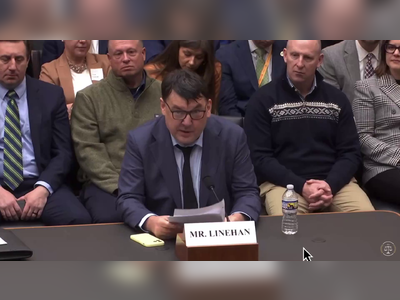Maritime Arrest Reveals Nearly 8 Tons of Shark in Unlicensed Costa Rican Fishing Haul
Coast Guard intercepts vessel carrying unauthorized catch, highlighting gaps in fishing regulation enforcement.
In an operation emblematic of the ongoing struggle against illegal fishing, Costa Rican Coast Guard officials apprehended a vessel named 'El Audaz II,' laden with 7,960 kilograms of fish, primarily gray shark, off the southwest coast of Flamingo, Guanacaste.
The interception, which took place on a routine patrol last Friday, exposed potential widespread breaches of fishing laws in the region.
The discovery followed a collaborative inspection conducted by the Servicio Nacional de Salud Animal (Senasa) and the Instituto Costarricense de Pesca y Acuicultura (Incopesca).
Authorities identified a cache of 801 fish stored in iceboxes with contaminated ice, comprising not only gray shark but also species like white and pink marlin, sailfish, and dorado.
The assortment indicated gross violations of existing fishing restrictions, as the vessel's artisanal fishing license only sanctioned the harvest of scale fish and mollusks.
The Ministry of Public Security confirmed that such findings classify the episode as a potential illegal fishing offense due to the absence of authorized documentation for this kind of capture.
'El Audaz II,' located 36 nautical miles from its namesake port of Flamingo in Santa Cruz Canton, was operating without the necessary permits, leaving its captain, identified only by the surname Umaña, to face arrest.
Umaña, the sole detainee out of four crew members, now faces prosecution by the Santa Cruz District Attorney for illegal fishing.
Post-detention, the boat and its spoils were confiscated, with authorities deeming the catch unfit for human consumption.
Consequently, the Santa Cruz Municipality facilitated the destruction of the load, adhering to public health protocols and environmental safeguards.
The complexities of shark fishing regulations in Costa Rica underscore the ambiguity and enforcement voids within the nation's maritime policies.
Despite sharks being listed under permissible captures in the Fishery and Aquaculture Interest Species List, the Costa Rican Fisheries and Aquaculture Law enforces stringent penalties, with infractions like targeting endangered species or engaging in finning punishable by prison terms ranging from two months to ten years.
This recent apprehension has reignited calls for stricter observation and punitive measures across the industry.
Environmental advocates urge fortified efforts to standardize local enforcement with global conservation aims, cautioning against the unchecked depletion of marine biodiversity.
The event challenges the Costa Rican government's capacity to monitor and sustain its richly biodiverse ecosystems, calling for a reevaluation of operational oversight in its coastal and maritime domains.
The interception, which took place on a routine patrol last Friday, exposed potential widespread breaches of fishing laws in the region.
The discovery followed a collaborative inspection conducted by the Servicio Nacional de Salud Animal (Senasa) and the Instituto Costarricense de Pesca y Acuicultura (Incopesca).
Authorities identified a cache of 801 fish stored in iceboxes with contaminated ice, comprising not only gray shark but also species like white and pink marlin, sailfish, and dorado.
The assortment indicated gross violations of existing fishing restrictions, as the vessel's artisanal fishing license only sanctioned the harvest of scale fish and mollusks.
The Ministry of Public Security confirmed that such findings classify the episode as a potential illegal fishing offense due to the absence of authorized documentation for this kind of capture.
'El Audaz II,' located 36 nautical miles from its namesake port of Flamingo in Santa Cruz Canton, was operating without the necessary permits, leaving its captain, identified only by the surname Umaña, to face arrest.
Umaña, the sole detainee out of four crew members, now faces prosecution by the Santa Cruz District Attorney for illegal fishing.
Post-detention, the boat and its spoils were confiscated, with authorities deeming the catch unfit for human consumption.
Consequently, the Santa Cruz Municipality facilitated the destruction of the load, adhering to public health protocols and environmental safeguards.
The complexities of shark fishing regulations in Costa Rica underscore the ambiguity and enforcement voids within the nation's maritime policies.
Despite sharks being listed under permissible captures in the Fishery and Aquaculture Interest Species List, the Costa Rican Fisheries and Aquaculture Law enforces stringent penalties, with infractions like targeting endangered species or engaging in finning punishable by prison terms ranging from two months to ten years.
This recent apprehension has reignited calls for stricter observation and punitive measures across the industry.
Environmental advocates urge fortified efforts to standardize local enforcement with global conservation aims, cautioning against the unchecked depletion of marine biodiversity.
The event challenges the Costa Rican government's capacity to monitor and sustain its richly biodiverse ecosystems, calling for a reevaluation of operational oversight in its coastal and maritime domains.











